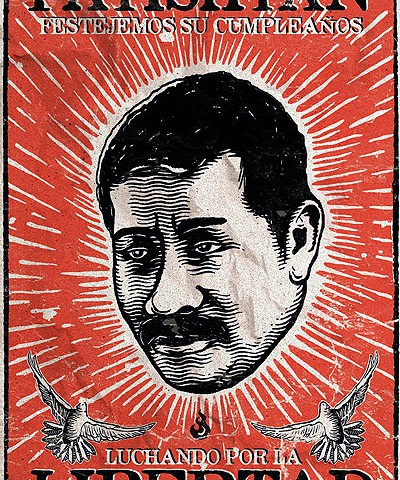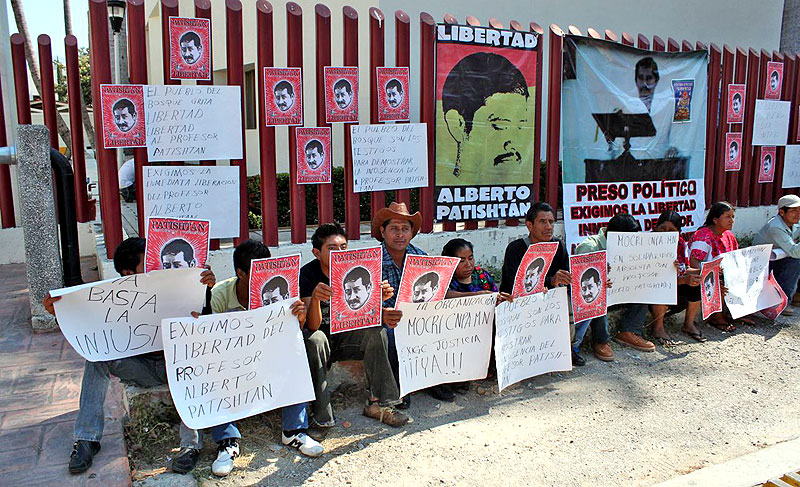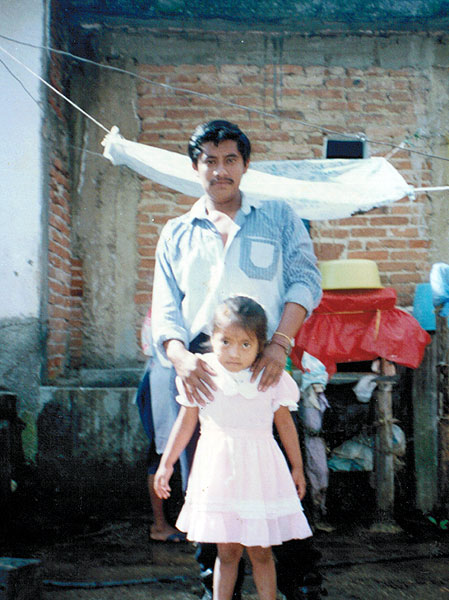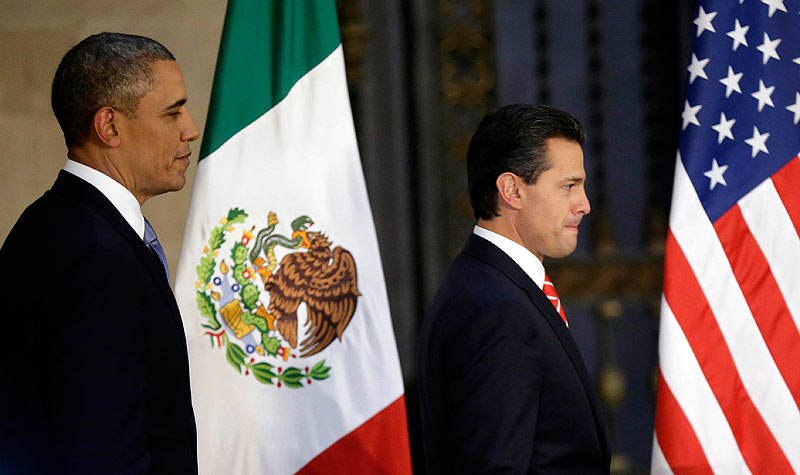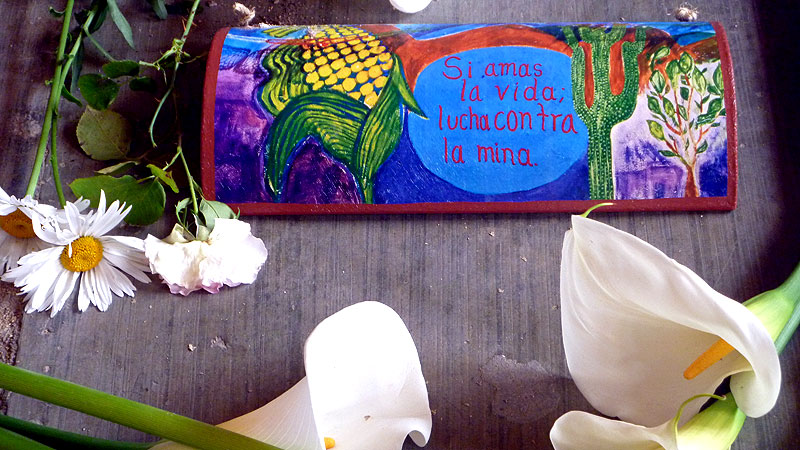
IN FOCUS : The unsustainability of the Extractive Mining Model
27/05/2013SIPAZ ACTIVITIES (From mid-February to mid-May 2013)
27/05/2013“There is still racism within the Mexican justice system.”
Leonel Rivero, defense counsel for Patishtán
“The struggle that I am undertaking is not just for me; it is for the whole world. It is not just I who is suffering. Many are imprisoned due to injustice, some for being poor or for not being able to pay for a lawyer—others because they don’t know Spanish. It is for these reasons that I am struggling—because justice does not exist.”
Alberto Patishtán, interviewed in the documentary “Live or Die for Truth and Justice”
Three Chiapas state-governors, Roberto Albores Guillén, Juan Sabines Guerrero, and the present governor Manuel Velasco Coello, have committed themselves to the release of Alberto Patishtán Gómez, a Tsotsil teacher who has been imprisoned since 19 June 2000, sentenced for more than 60 years. Velasco Coello has declared that “We do not want to return to having cases like that of professor Alberto Patishtán, who should not be incarcerated,” and that “the release of Alberto Patishtán would be an act of justice.” For his part, Juan Sabines is on record as having said that “here there has been a judicial error; there was negligence when they reviewed the evidence in the case,” adding that “he will be liberated.”
Judicial defense: a process plagued by irregularities
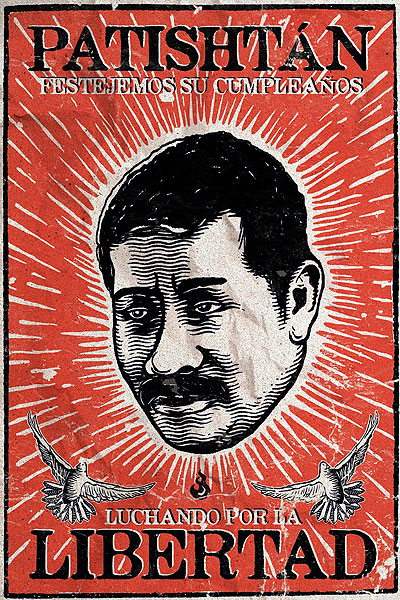 Alberto Patishtán is an indigenous Tsotsil professor from the El Bosque municipality in the Highlands of Chiapas. He was sentenced for supposedly having participated in an ambush which resulted in the deaths of 7 police, as well as the charge of the carrying of firearms that are exclusively for Army use. Both of these crimes are considered to be federal charges.
Alberto Patishtán is an indigenous Tsotsil professor from the El Bosque municipality in the Highlands of Chiapas. He was sentenced for supposedly having participated in an ambush which resulted in the deaths of 7 police, as well as the charge of the carrying of firearms that are exclusively for Army use. Both of these crimes are considered to be federal charges.
He was arrested without an arrest-order and forced to sign a declaration in the absence of any counsel. The accusation was based essentially in the declarations of two surviving witnesses who experienced the massacre: the son of the mayor at that time, as well as a police officer. Both of their declarations demonstrate grave contradictions. The son of the mayor has declared that he saw Patishtán, who reportedly beat him after he had fallen. He also claimed that Patishtan had his face uncovered, an assertion which contradicts the police officer in question, who referred to masked assailants. As a part of this incident, the ex-mayor’s son was injured in the stomach, though he said that he had been wounded on his back.
Furthermore, the elaboration of the petition made by the Federal Public Ministry, the transfer of the document to the judge, and the deliberation of sentence, according to the minutes in the case, were all completed in only 15 minutes, thus leaving serious doubts regarding the investigation and integrity of the case, given that the mere distance between the ministerial offices and the court could not have been covered in that short of a time.
Presently, the case is in the First Collegiate Tribunal in Tuxtla Gutiérrez, where the innocence of Patishtán could indeed be recognized. On 6 March 2013, the Supreme Court for Justice in the Nation (SCJN) resolved not to address whether it was competent to revise the case, despite the fact that the utterances of justice Olga Sánchez Cordero suggested new indications in favor of the cause of Alberto Patishtán, given that, were he to have been judged with the criteria approved by the SCJN in recent years, he surely would have been granted his liberty due to the serious violations to due process which occurred during his trial. Sánchez Cordero herself had also indicated that Patishtán should be released immediately. Paradoxically, though, this process has been marked in recent months by the release of 15 indigenous persons accused of having participated in the Acteal massacre, thus amounting to a total of 73 who have been liberated after having been incarcerated for the crime since 2009. Their releases were not due to their innocence, but rather emanated from violations to due process. Similarly, Florence Cassez, a French citizen who infamously was condemned to 60 years’ imprisonment in 2007 for kidnapping, organized crime, and illegal possession of arms for the exclusive use of the Army, was also released following the identification of failures in due process, as well as strong diplomatic pressure.
National and international support
Never has a prisoner been afforded so much support and respect from organizations, politicians, and social movements. In January 2010, Alberto Patishtán was awarded the Jtatic Samuel Jcanan Lum Recognition for “his service, care, and love for his people.” Bishop emeritus Samuel Ruiz García himself entered the San Cristóbal de Las Casas prison to personally present Patishtán with the award. On 19 April 2013, some 8000 people organized by the Believing People (a Tsotsil team from the San Cristóbal diocese, together with members of the Movement of El Bosque for the Liberty of Alberto Patishtán, and accompanied by teachers from the National Union of Educational Workers (SNTE) of Chiapas) carried out a pilgrimage in favor of the release of this teacher in the Chiapas state capital of Tuxtla Gutiérrez. Amnesty International has concluded that there were serious failures to due process, among them irregularities and contradictions in the declarations of the witness who identified Patishtán as responsible for the crimes of which he is accused, and there exists evidence that Patishtán Gómez found himself somewhere else entirely during the time of the attack. Furthermore, in recent years there have been made an innumerable number of marches and campaigns in favor of his release.
An example of inspiration and struggle
Throughout the 13 years of his imprisonment, Patishtán Gómez has been recognized as a human-rights defender, beyond being a teacher and social activist who has shown the path to justice in the different prisons where he has been held. His comrades value him as an example of inspiration who has taught reading, writing, and the Spanish language to indigenous prisoners who know only their own tongues, beyond strengthening the spirituality of others through his ministry of the Eucharist, as recognized by the Tuxtla diocese. He has led and participated in numerous fasts and hunger strikes. In the 41-day hunger strike which took place in 2008, he was the only one to remain imprisoned. With regard to this, he noted, “I thought: if I die, well that is fine. It is better to die struggling for liberty than to resign oneself.” As Patishtán observed during a visit by SIPAZ to the San Cristóbal de Las Casas prison, “here we are, sharing what little we know,” with the result that he is popularly known as “The Prof.”

